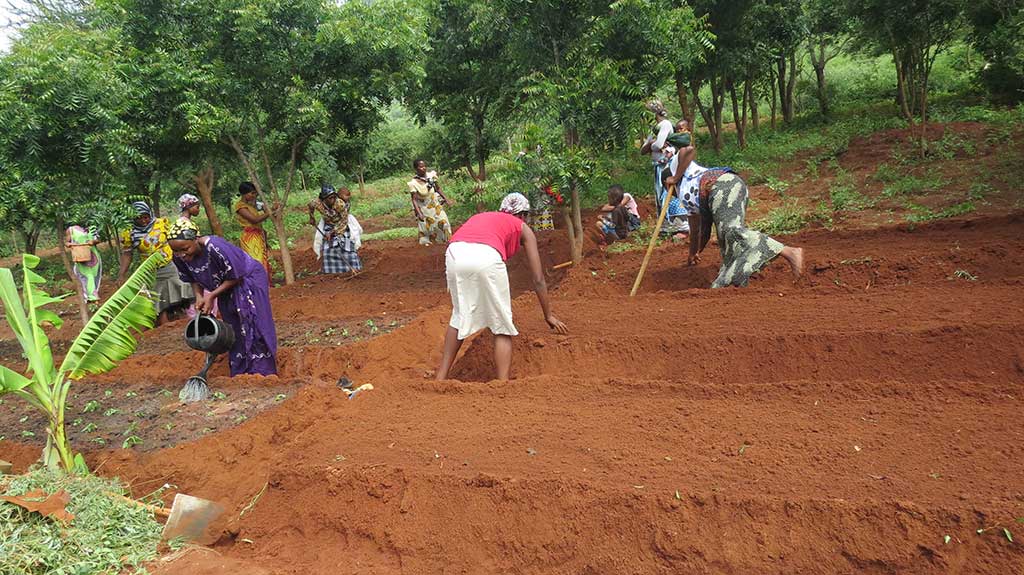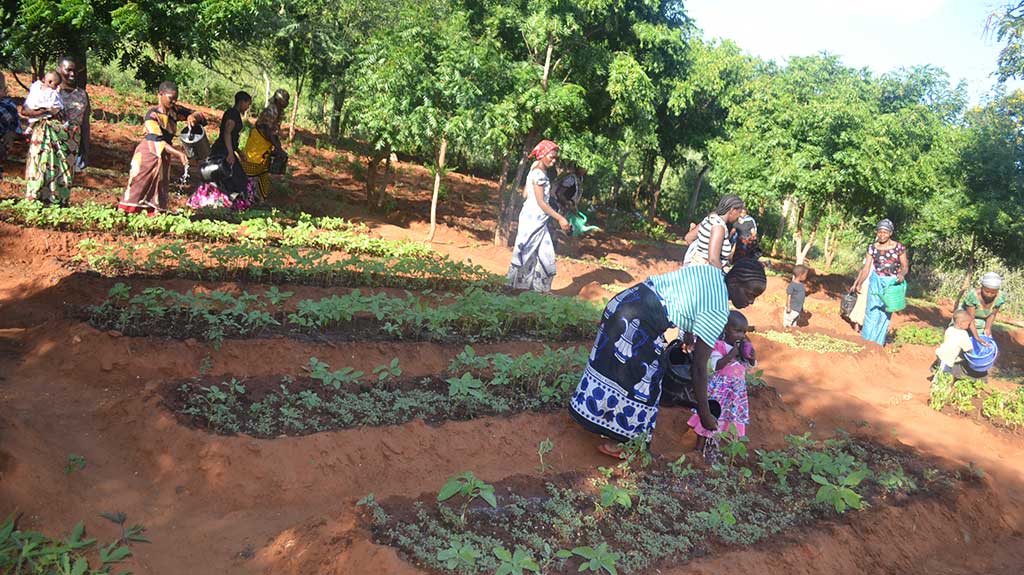When disaster strikes, crops fail or food prices rise, it’s often women who feel the deepest impact. Many sacrifice their own food consumption to ensure their children eat. For women like Joyce, not knowing where her family’s next meal was coming from was a daily worry.
To the east of Moshi, Tanzania, Joyce and a group of women sit in a circle shaded by the church building. They’ve finished their Bible study and are now chatting freely while their toddlers play happily in the middle. Their laughter carries across the churchyard as they share the joys, challenges and frustrations of family life. All new or expectant mothers, they’ve been brought together by Compassion’s Child Survival Programme.
Before joining the programme, one of the biggest issues Joyce faced was food insecurity. The land where she lives is dry and receives little rain each year, meaning she relied on having enough money to buy food from neighbouring villages. “My life was too tough. I used to live like a bird, depending on nature and what that day bought. Some days I would get something to eat and some days I would go hungry,” explains Joyce.
Despite sharing the same challenges, the group of women didn’t have the resources to be able to bring about change in their situation. This is where their Child Survival project stepped in.
During their weekly meetings Joyce and the group received skills and income generation training from the project. They began to see what was possible with a small investment. Since food was a common challenge, they decided to start a vegetable garden.
The church gave a portion of their land for the garden, close to a water reservoir, so they could keep their plants watered all year round. They cleared the bush, levelled the land and prepared it for planting. After just one month, the group started seeing the fruits of their labour. Soon they had a reliable source of vegetables for their families. “The vegetable growing project is good. I have started saving, a practice that I could not have done in the past. Before, it was so difficult to get vegetables for the family, especially if I didn’t have money to buy. But now, if I don’t have vegetables at home I know a reliable place to get them,” says Mwana-Arafa, one of the mothers.
The garden has not only improved health, with the project seeing a decline in medical costs for treating nutritional deficiencies like anaemia, it’s also improved the economic welfare of the women.
The abundance of crops from the first harvest meant they were able to sell some of their produce. With this income they started a microfinance loan system to enable the group to set up small businesses of their own. And the project is now full of flourishing entrepreneurs.
Coming together to grow vegetables has also increased unity. “When we are together we feel we are strong and that we can accomplish our goals,” said Joyce with a smile. “I am thankful to those who have supported us and I know I am going out of here with lots of benefits.”
Empowering women economically is key. Research shows that women reinvest up to 90 percent of their income back into their families, prioritising nutrition, health care and spending more on their children compared to 30-40 percent of men.* By investing in women through income-based skills training, the Child Survival Programme is helping create long-term social and economic benefits for families and their communities.
*UN report – Empowering girls and women






